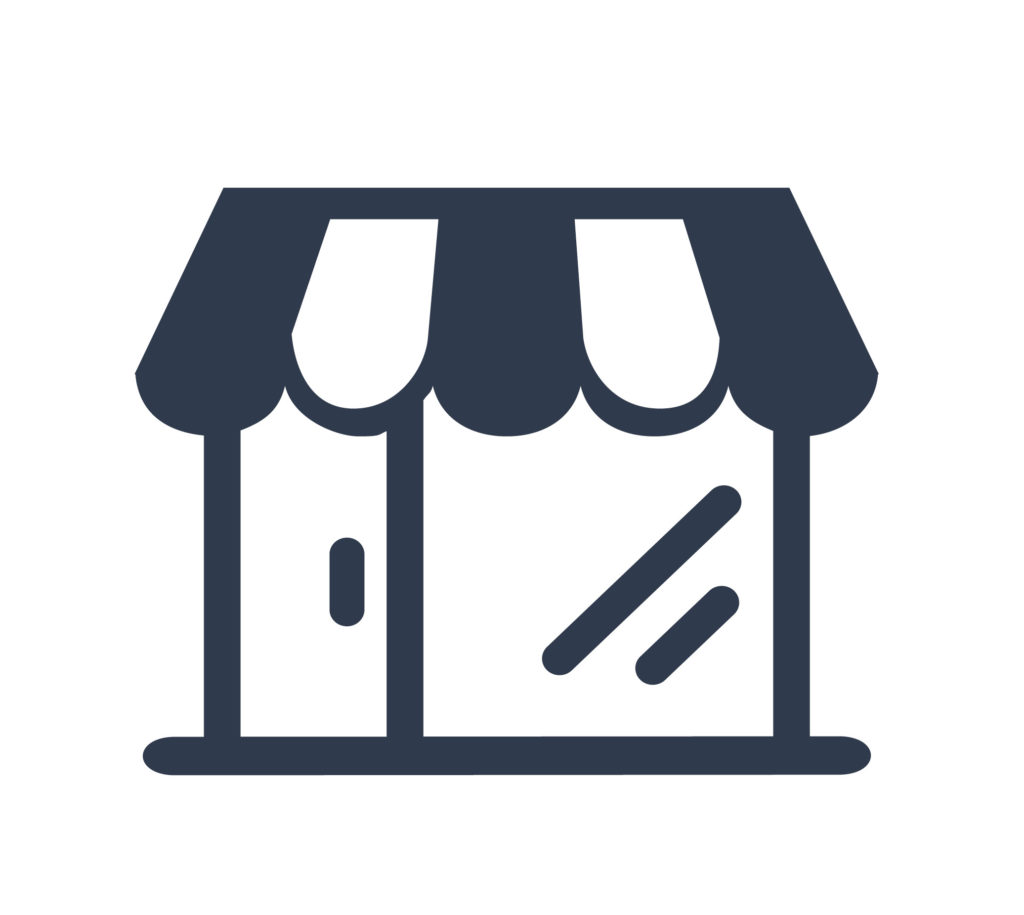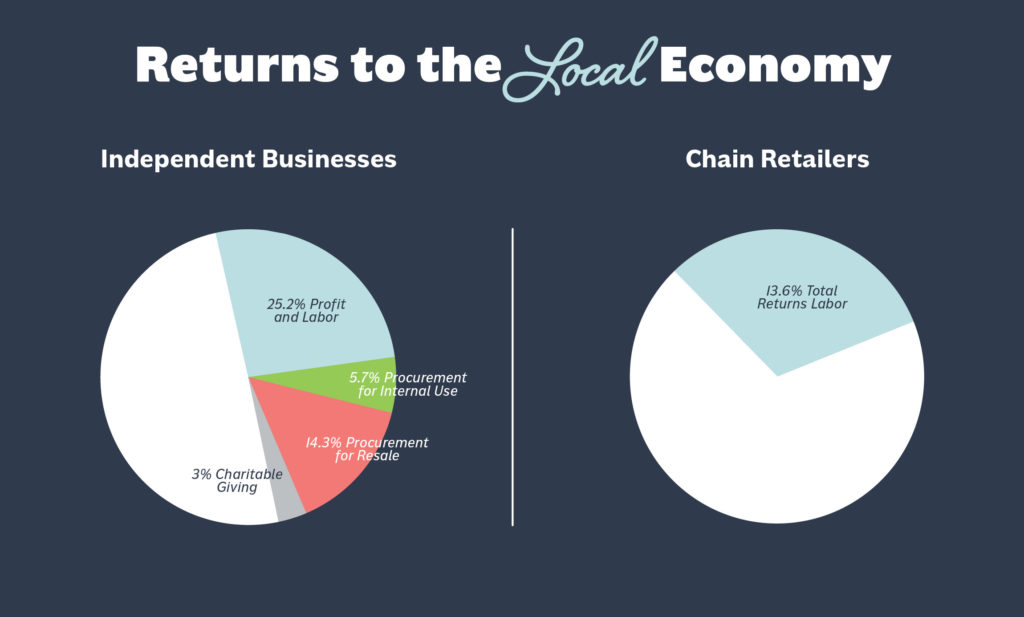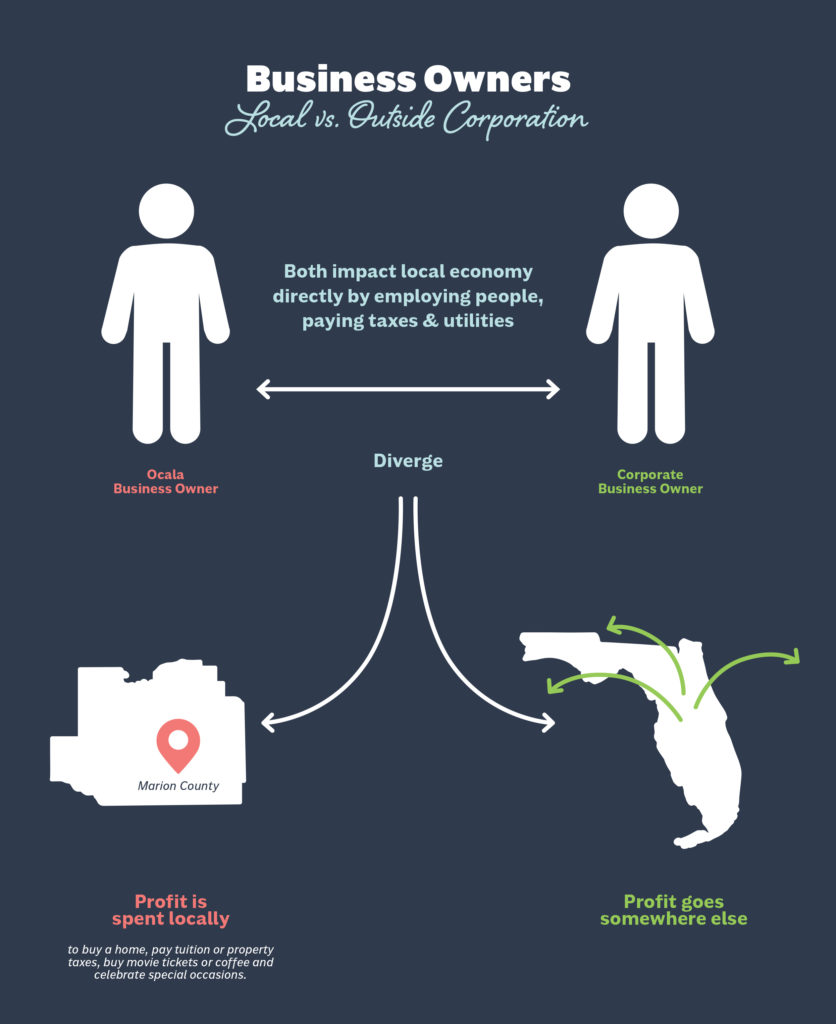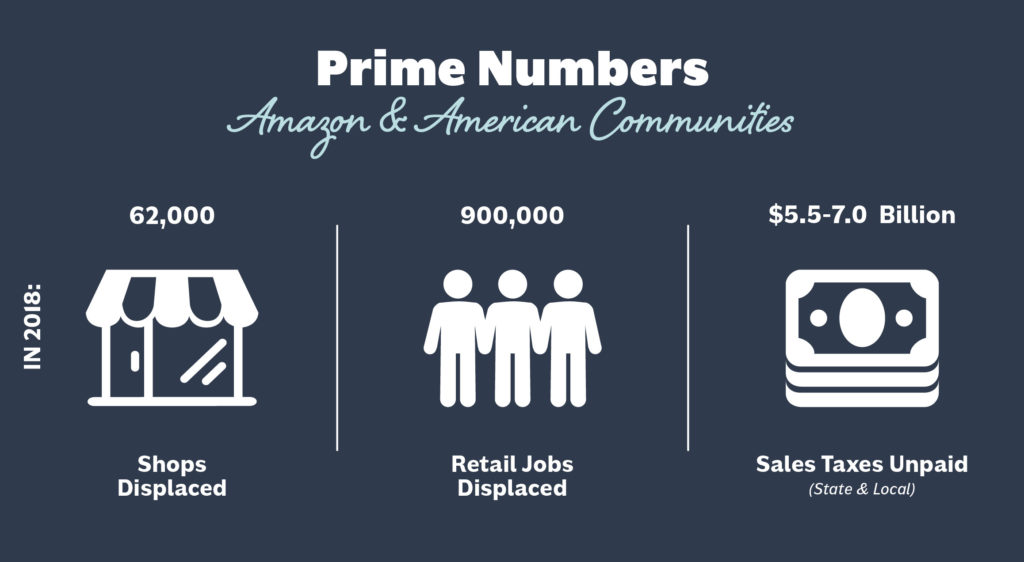 Over the last few decades, as big box and one-stop shopping has outpaced the desire we once felt to shop local, we have lost sight of the compelling impact that buying local has on our community’s economic development and the distinctiveness of our local marketplace.
Over the last few decades, as big box and one-stop shopping has outpaced the desire we once felt to shop local, we have lost sight of the compelling impact that buying local has on our community’s economic development and the distinctiveness of our local marketplace.
With Buy Local campaign messages being touted from the rooftop of nearly every community economic development organization in our country, most of us are looking for a way to play a more civic-minded part in our local economy yet maintain a certain lifestyle within a budget. So let’s talk about how we can do that.
First, let’s start by agreeing that it has been a very, very long time since any community could claim itself a closed economy. Instead, our way of life depends on imported goods, ranging from food and fashion to electronics and vehicles from all over the world. We demand flowers, fruits and vegetables when we crave them, no matter the season. We want the hottest electronics at the lowest cost. Let’s face it, our need for immediate delivery of what we want when we want it has become insatiable and if we’re honest with ourselves, going on a diet from consumerism is unlikely.
That being acknowledged, is there some happy medium that could allow us to feel good about how our purchasing power impacts our local economy without costing us an arm and a leg or becoming too much of an inconvenience?
Second, let’s agree that there are plenty of charming ideas we love about Buy Local campaigns. Given the times we live in, everyone is hungry for a common cause where we can, with very little dissention, come together to improve the lives of our neighbors. Not to mention the town pride that wells up when we describe to outsiders all the independently owned businesses that give our community its individual character. But all fuzzy feelings aside, is the Buy Local philosophy merely a drop in the bucket when you consider what contributes to a sound local economy? Just how important is it?
Show Me the Money
Buy local efforts can definitely impact a local economy for the good.
Research shows that locally owned businesses generate two to three times more local economic activity than outside corporately owned stores. If each shopper in a moderately sized community would simply purchase one out of 10 comparably priced items that they normally purchase from big box chain stores from an independent local business instead, tens or possibly hundreds of millions of dollars in revenue would be infused into the local economy annually.
A study performed by the independent research group Civic Economics proves that this type of investment pays off big. Their research shows that for every dollar you spend in a locally owned, independent business, on average, 48 cents is recirculated locally. That’s almost 50 percent of every single dollar spent on every item you purchase, and that’s quite a return on any investment. These numbers are similar for all lines of goods, including electronics; entertainment; sporting goods and toys; apparel and accessories; home furnishings and décor; and consumables and commodities.
“There’s no doubt about it; money that you spend at an independent, locally owned business helps produce a stronger local economy,” says Dave Lanzilla, associate professor of business and technology at the College of Central Florida. He adds that the money “is returned in many different ways.”

Five ways money is recirculated into the local economy when you make a purchase:
Profits paid to business owners and investors
Wages paid to local employees
Goods procured from other local businesses, both for resale and for internal use
Services procured from local providers such as attorneys and accountants
Charitable donations to local nonprofits
The American Independent Business Alliance (AMIBA) states that buying local affects the area’s economy through direct economic impact in the form of inventory, utilities, equipment and wages; indirect impact when profits earned are spent at other local businesses; and induced impact when employees, business owners and others who receive money from the local business spend their money locally.
The alliance states that if local residents want to have access to a strong, thriving local business community, then it is imperative that they provide economic support by shopping locally.

Businesses Helping Businesses
When you buy a product locally, it not only helps the business you’re buying from at the time, it also helps all the local businesses that provide goods and services to that business. Many towns form Independent Business Alliances (IBAs) in an effort to bring local businesses together for the mutual benefit of all involved…including the shopper.
Kevin Sheilley, president and CEO of the Ocala/Marion Chamber and Economic Partnership, says that the CEP “encourages local businesses to do business with other local businesses, so they can all grow together.”
For example, if a local restaurant buys its produce and other sundry items from local sources, everyone involved benefits and it’s doubly positive for the entire community’s economy. For the restaurant, shipping costs and the time that food spends in transit can be reduced, and money is saved. For the restaurant’s patrons, it means that products such as produce come to the table fresh out of the field and many times are cheaper.
“Through our business retention program, we help, on average, 60 new businesses per year establish successful local business-to-business relationships,” Sheilley says. “When local businesses contact us and ask us to help find a local vendor that will meet their needs, we’re ready and able to do so. Just the fact that 60 new businesses each year ask us to find local vendors to provide their needed goods goes to show that this type of cooperation is definitely cost effective and it works.”
These symbiotic business relationships not only help small local businesses compete against larger chain stores, they also help push down product prices for the consumer.
The Dark Side of Chains and Online Shopping
Researchers say that not only does it help the local economy when you buy from local independent businesses, it actually hurts the local economy when you buy from area chain stores or from online sources.
Studies show that chain stores recirculate on average only 16 cents of each dollar in revenue into the local economy and that is almost exclusively through wages paid to local workers. That’s one-third of what local independent retailers contribute. Chain store profits go back to the company’s headquarters in another state or country; they rarely, if ever, buy goods from local sources; service providers are almost always found near the corporate headquarters; and chains rarely donate to local charities. Money spent at chain stores is literally money being sucked out of the local economy.
“Retail supercenters like Walmart and Target and online retail sales definitely take away business from smaller local stores,” Lanzilla explains. “Money that would have been spent here in Ocala and Marion County is going to other states and countries.”
The American Independent Business Alliance agrees, stating that online sales grossly undermine local economies. Shoppers, looking to purchase goods at lower prices have been turning to the internet in an effort to save money. Many times, the reason those goods are selling for lower prices is because many online companies don’t pay sales tax to the State of Florida. If an online company, such as Amazon, has a physical presence in Florida, then they are required to charge customers sales tax and remit it to the state. However, third-party companies selling through businesses such as Amazon (companies that don’t have a physical presence in the state) aren’t required to do so.
Economists calculate that the state could be losing as much as $500 million per year in lost sales tax. When you consider the fact that sales tax makes up almost 60 percent of the state’s general revenue fund, it’s easy to see how failing to pay sales tax hurts both local and state economies.
Most Floridians are unaware that all state residents are subject to what is called a “use tax.” This law states that each of us should file a Form DR-15MO and remit 6 percent sales tax to the state for any item we purchase online from a seller who doesn’t collect tax or who collects tax at a rate less than the state rate during a sale. Retail advocates point out that if every Floridian went through the process of filing the form and remitting the sales tax payment to the state every time they made an online purchase, then online sales might not be quite as popular.
How profoundly do online sales hurt local economies? Research by Civic Economics shows that in 2018, Amazon and its third-party sellers displaced 62,000 shops and 900,000 retail jobs nationwide while costing states between $5.5 and $7 billion in lost sales tax.

The Bottom Line in Shopping Local
Research proves that buying from locally owned businesses as much as practical is the wise thing to do.
Instead of suggesting a radical lifestyle change that might feel contrived and inconvenient, if each of us could shift 10 percent of our shopping habits towards locally owned businesses, then with very little effort we’d make an invaluable investment in our community.
The obvious benefit to each of us individually adopting this mindset is that money kept locally has an opportunity to flow back to us in various ways through commerce. But, most importantly, it’s the civic thing to do. Even if a product costs a few cents more when bought from a locally owned retailer, we should consider every purchase an investment in our community, neighbors, friends and our future. Buy local, buy smart and give back where it really counts.
Shopping local is easier than you think. Follow along on the Ocala Style Facebook and Instagram as we give love all month long to locally owned shops throughout Ocala.






